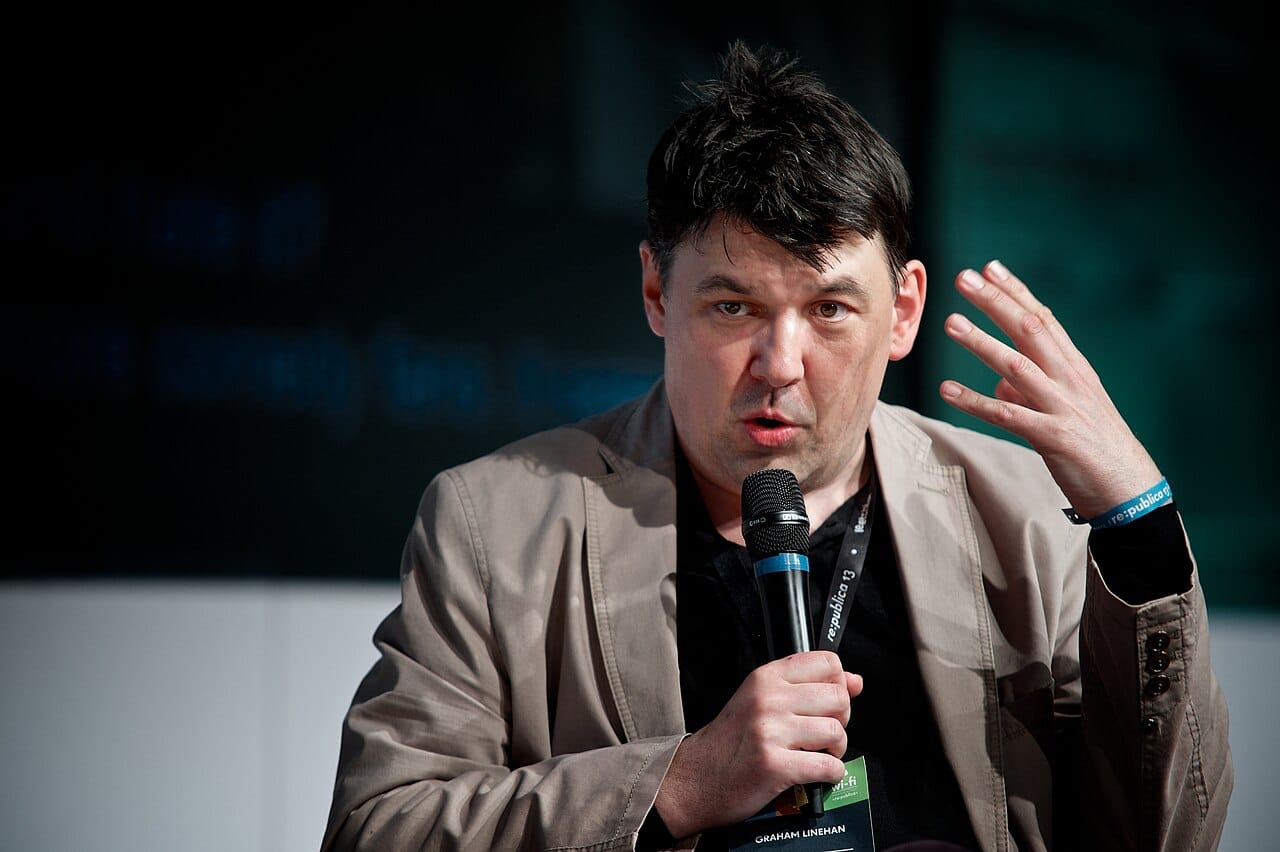Table of Contents
The arrest of “Father Ted” creator Graham Linehan at London’s Heathrow Airport has thrust Britain into a heated national conversation about the boundaries between legitimate criticism and criminal speech online.
Comedy Writer Detained Over Transgender-Related Social Media Posts
Linehan, 57, was reportedly detained by five armed officers upon returning from Arizona on Monday. The Metropolitan Police arrested him on suspicion of inciting violence through posts on X (formerly Twitter), though they haven’t officially named the comedy writer.
The arrest stems from controversial social media activity where Linehan, known for creating beloved British sitcoms including “Father Ted” and “The IT Crowd,” made inflammatory statements about transgender individuals using women-only facilities.
The Posts That Led to Police Action
In April, Linehan posted on X that transgender women were “violent criminals” if they accessed women-only spaces. He went further, suggesting people should “punch” them if other measures failed to prevent their entry into these facilities.
The timing proved significant – his posts came just days after Britain’s Equality and Human Rights Commission announced that transgender women would be excluded from women-only spaces like toilets, hospital wards, and sports teams. This decision followed a landmark ruling by the UK’s highest court defining “woman” and “man” in biological terms for anti-discrimination law.
Another post from Linehan targeted trans-rights protesters directly, stating simply: “I hate them.”
Medical Emergency During Questioning
Following his arrest, Linehan claims the police interrogation caused his blood pressure to spike dangerously, requiring hospitalization and overnight observation. He was subsequently released on bail with conditions preventing him from posting on X.
Writing on Substack, Linehan characterized his arrest as punishment for making “jokes,” framing the incident as government overreach into comedy and free expression.
High-Profile Support and Criticism
Celebrity Backing
The arrest drew immediate support from prominent figures, most notably “Harry Potter” author J.K. Rowling, who has faced her own controversies over transgender issues.
“This is totalitarianism. Utterly deplorable,” Rowling declared on X, amplifying concerns about government censorship.
Conservative Party leader Kemi Badenoch criticized the police response, arguing: “It’s time this government told the police their job is to protect the public, not monitor social media for hurty words.”
Media Response Divided
British tabloids rallied behind Linehan, with The Sun expressing “outrage” over the arrest of the “Father Ted genius.” The Daily Mail provocatively asked: “When did Britain become North Korea?”
However, Green Party leader Zack Polanski defended the police action, calling Linehan’s posts “totally unacceptable” and the arrest “proportionate.”
Legal Context: Where Free Speech Meets Criminal Law
Britain’s Human Rights Act protects freedom of expression, but with clear limitations. Inciting violence remains illegal, as does hate speech targeting individuals based on race, gender, sexuality, or religion.
The challenge for law enforcement lies in navigating these boundaries in the digital age. Social media policing has increased dramatically, with hundreds prosecuted following anti-immigrant riots in summer 2024 – both for physical participation and online incitement.
Metropolitan Police Chief Sir Mark Rowley recently acknowledged that legal ambiguities have left officers “in an impossible position” when determining what constitutes criminal online behavior versus protected speech.
Pending Legal Proceedings
Beyond the airport arrest, Linehan faces additional legal troubles. He’s scheduled to appear in a London court Thursday on separate charges of harassing a transgender woman and damaging her phone – allegations he denies.
These multiple legal fronts suggest a pattern of escalating conflict between Linehan’s outspoken views and British hate speech laws.
Broader Implications for Digital Discourse
The Linehan case highlights fundamental tensions in modern Britain between protecting vulnerable communities and preserving robust public debate. As political discourse increasingly moves online, the line between legitimate criticism and criminal speech becomes ever more contentious.
Critics argue that aggressive policing of social media posts creates a chilling effect on free expression, potentially criminalizing opinions that were once considered part of normal democratic debate.
Supporters counter that online harassment has real-world consequences for marginalized groups, making police intervention not just appropriate but necessary for public safety.
What This Means Moving Forward
The outcome of Linehan’s cases could set important precedents for how Britain handles controversial speech in the digital era. With both major political parties weighing in and public opinion sharply divided, the comedian’s legal battles may ultimately reshape the boundaries of acceptable discourse in one of the world’s oldest democracies.
As Britain grapples with balancing free expression against protecting vulnerable communities, the Linehan arrest serves as a stark reminder that even comedy writers aren’t immune from the long arm of the law when their words cross certain lines.
Photo Credit:
Par re:publica from Germany — re:publica 2013 Tag 1 – Graham LinehanUploaded by Schreibvieh, CC BY-SA 2.0, https://commons.wikimedia.org/w/index.php?curid=30611514



